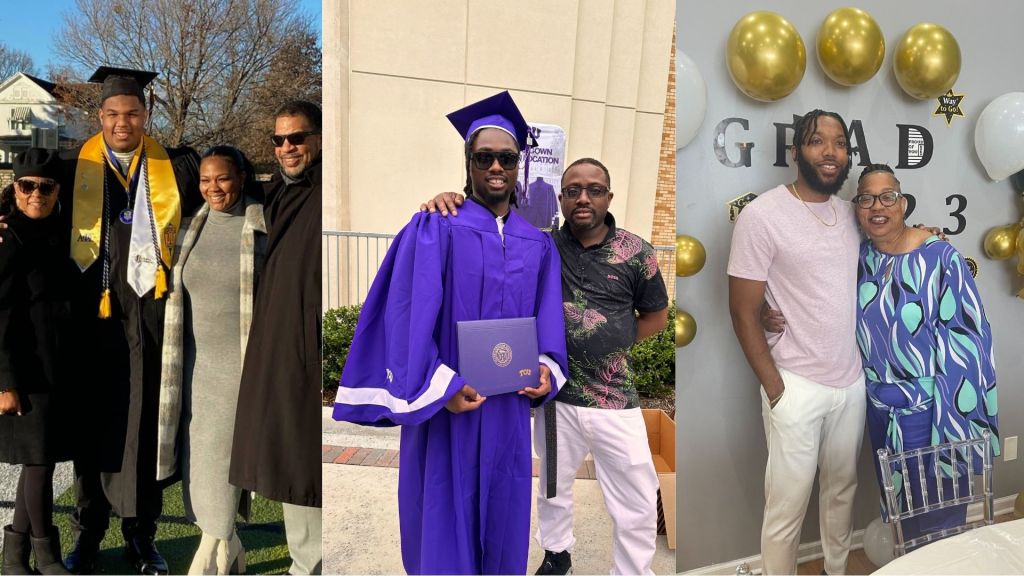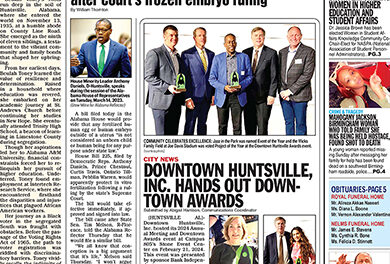By D. Kevin McNeir
Special to the AFRO
During the early 1980s, Jawanza Kunjufu, an African American educational consultant, mentor and author, emerged as one of the first educators to take aim at Black male achievement, addressing the system’s flaws and encouraging us to work towards correcting them.
In his highly acclaimed text, “The Conspiracy to Destroy Black Males,” published in 1983, along with dozens of other subsequent works, including “To Be Popular or Smart: The Black Peer Group,” Kunjufu asserted that the greatest challenge facing Black male educational success was neither the race or gender of the teacher but rather teacher expectations, time on task and classroom management.
He further posited that while some Black males choose the road less traveled – academic prowess – they often find themselves at odds with their peers and their community who value popularity and fitting in more than being smart.
Publisher and educator Haki Madhubuti, considered the architect of the Black Arts Movement, continued the conversation sparked by Kunjufu in his seminal text, “Black Men, Obsolete, Single, Dangerous”: The Afrikan American Family in Transition (1991). In his collection of essays and poems, the author confronts the issues plaguing Black men and youth in the late 20th century, including drugs, police violence, poor self-esteem and white supremacy.
More than 40 years later, the playing field for Black students, male or female, has changed for the better – albeit often at a snail’s pace. However, the field remains unlevel.
The numbers bode poorly for Black males
Consider the following statistics aggregated by the Centers for Disease Control and The Journal of Blacks in Higher Education, updated in December 2023:
-Black males in the U.S. graduated at a rate of 59 percent, the lowest among both genders and all racial/ethnic groups in 2019-2020.
-76 percent of Black males have graduated high school compared to 92 percent of White males as of 2019.
-Only 35 percent of Black male high school graduates enrolled in college compared to 45 percent of White males as of 2019; and
-As of 2016, only 23 percent of Black men aged 25 and older hold a bachelor’s degree or higher, with Black male students representing just 1.8 percent of 2018 bachelor’s recipients despite being 6.5 percent of the U.S. population.
Data related to employment and graduate school enrollment further illustrates the inequities between Black males and their peers with 33.4 percent of Black men, 1-in-3, not enrolled in school or working in 2018.
Meanwhile, Black women, in 2021, outpaced Black men enrolled in graduate school, 373,000 to 223,000, respectively, with Black women making up 62.6 percent of all African American enrollments in graduate school.
But despite these numbers — and even given a recent study released by Edge Research and HCM Strategists which found that the perceived value of a college degree slipped last year among young people, who expressed more confidence in on-the-job training and certifications — Black males continue to debunk the stereotypes and overcome the less than stellar reports about Black male achievement.
Black males share tales of success
Duane Sedgwick, 22, who graduated in May with a bachelor’s degree in mechanical engineering from Texas Christian University (TCU) in Fort Worth, Texas, now lives in Minneapolis, Minnesota, where he works for a contracting company as a structural engineer. He said he’s always had a propensity for mechanics and mathematics and knew TCU was the right choice.
“I’ve always wanted to do something that involved problem solving and engineering and TCU had a great program, especially in the instruction of the mechanics used in the construction and land development fields,” said Sedgwick, who grew up in Silver Spring, Maryland, and attended Wheaton High.
“My friends were always there when I needed them and I’ve always moved to my own beat,” he said. “I didn’t let outside influences affect my decisions and I was careful not to fall into doing the kinds of negative things that I saw others doing around me or on the news. The greatest support came from my family, especially my dad. I’m the first to graduate from college and that’s meant a lot to him.”
Sedgwick, who started his job on Sept. 11, said his college experience was essential to his success.
“College gave me plenty of opportunities to network and make connections – relationships that I will have forever,” he said. “Of course, I’ve already learned a lot with on-the-job training but there’s no
getting around it – a college degree is essential today.”
Alan Bradford “BJ” Wilson III, 25, recently moved back home to St. Louis, Missouri, with his parents. The former college football standout had hopes of playing in the pros, and after being cut by the Carolina Panthers, playing for the Edmonton Elks and working out with three NFL teams, he was poised to sign with the San Antonio Brahmas (UFL). But his dreams were recently upended after a routine physical revealed a career-ending injury.
“I found out that I had a torn meniscus and basically had no cartilage in my knee, even though I’d been playing on it and didn’t feel any pain,” Wilson said. “I had no choice but to medically retire and I’ve been back home now for about a month.
“I’m still working out and I’m coaching kids in the facility where I once trained,” he said, “but I won’t be
able to play in the pros as no team will take the risk, given the injury.”
Still, Wilson said he remains undeterred. Armed with a college degree from Quincy University (Illinois), where he studied computer science, criminal justice and minored in cyber security, and after completing an MBA program in organizational leadership last May, the former athlete is mapping out a new future.
“Football was always my dream but my parents taught me the importance of going to college and earning your degree. That was the first order of business,” he said.
“With professional football no longer an option, it just confirms how important higher education is if you want to do something meaningful with your life,” he added. “In fact, I am preparing to take a security-plus exam so I can become certified in cyber security. That’ll help me get back in the job market faster and easier. I like being home but I want to move out and on my own as soon as I can.”
Wilson said with both parents in federal law enforcement, he grew up in a home that was stricter than many of friends. And he liked it that way.
“My parents kept me and my sister focused and provided the tools we needed to be successful in school. We became the adults who we are today because of our parents,” he said.
Jared McNeir, 30, currently lives in Chicago after graduating from the University of Michigan (2016) with a bachelor’s degree from Ross School of Business and then from Northwestern University Kellogg School of Management in May 2024 with an MBA in marketing. Despite being only one of five Blacks in his graduating class at Northwestern, McNeir said he found it to be an inclusive community.
“They had a lot of programming that focused on social justice and a culture that both supported and affirmed diversity,” he said. “And while I was in school during the pandemic, it wasn’t as difficult as you might think. Business school is very fluid and by the time you’re in your second year, you’re expected to show that you can be a leader. Some of the traditions were lost because we couldn’t meet or get out in the community like students who did before the pandemic but that was only during my first year in the program.
Now, McNeir is working at PepsiCo as an associate marketing manager, building brands and using them to sell products.
“I always knew I was interested in marketing. Now I’m using what I learned in school and being creative,” he said. “Some of what I’m doing I’ve learned on the job but my degrees remain my foundation.”
The post Black males debunk America’s stereotypes, embrace higher education as a means to achieving their dreams appeared first on AFRO American Newspapers.











